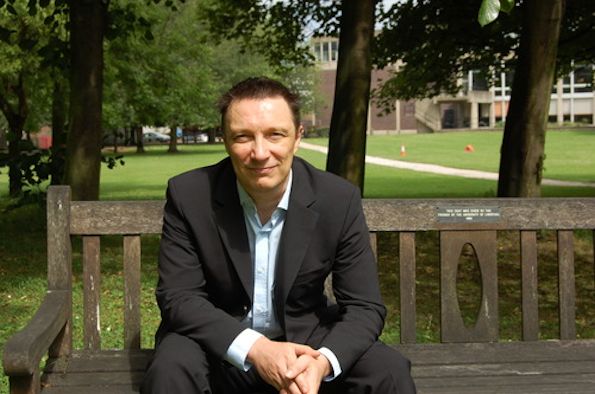
The University was recently awarded £10 million by the Leverhulme Trust to establish the Leverhulme Centre for Functional Materials Design. In an interview with Elements, the magazine for the North West Chemicals industry, Professor Andy Cooper, who heads up the new centre, explains how the power of modern computer technology looks set to transform the discovery of new materials.
He said: “The basic argument behind the Leverhulme Centre is that we need materials on a timescale that is faster than we can deal with: energy problems, sustainability, element scarcity – all these things are fairly pressing.”
Interdisciplinary fusion
One of the unique features of the new centre which Professor Cooper identifies is its interdisciplinarity: “The centre will help to bridge the current design gap by fusing leading-edge synthesis concepts from the physical sciences with ideas from the forefront of computer science, alongside experts in robotics, engineering, management and social science.”
“This discipline mix will transform our ability to design and synthesise. Computational methods are evolving at a really fast rate. This idea is of its time – you couldn’t have done it 20 years ago.”
By looking beyond the field of chemistry and engaging computer scientists and people who work in robotics, Professor Cooper thinks the new centre, “can really take things to a new level; we start to use computers with automation to find new materials on a much faster scale.”
Industry
Industry will be able to access and benefit from the centre says Professor Cooper: “We’re looking to open source code and approaches. We’ve got money to fund workshops in all the areas we’re working in, where we’ll invite academics and industrialists, so a big part of the centre is going to be to disseminate this.
“We think industry can really benefit because if we make these methods work there is absolutely no reason that industry can’t use them to find materials. In the long term, I think it could have a lot of economic and industrial benefit.”
Materials Innovation Factory
The new centre will be located in the £68million Materials Innovation Factory which is due to open in 2017. Professor Cooper is also Director of this new 11,000 sq ft facility which is the result of a partnership between the University and Unilever.
While the Leverhulme Centre is dedicated to more ‘blue skies’ research in cutting edge chemistry, the Materials Innovation Factory is more directly concerned with enabling industry to turn scientific discovery into practical commercial endeavour.